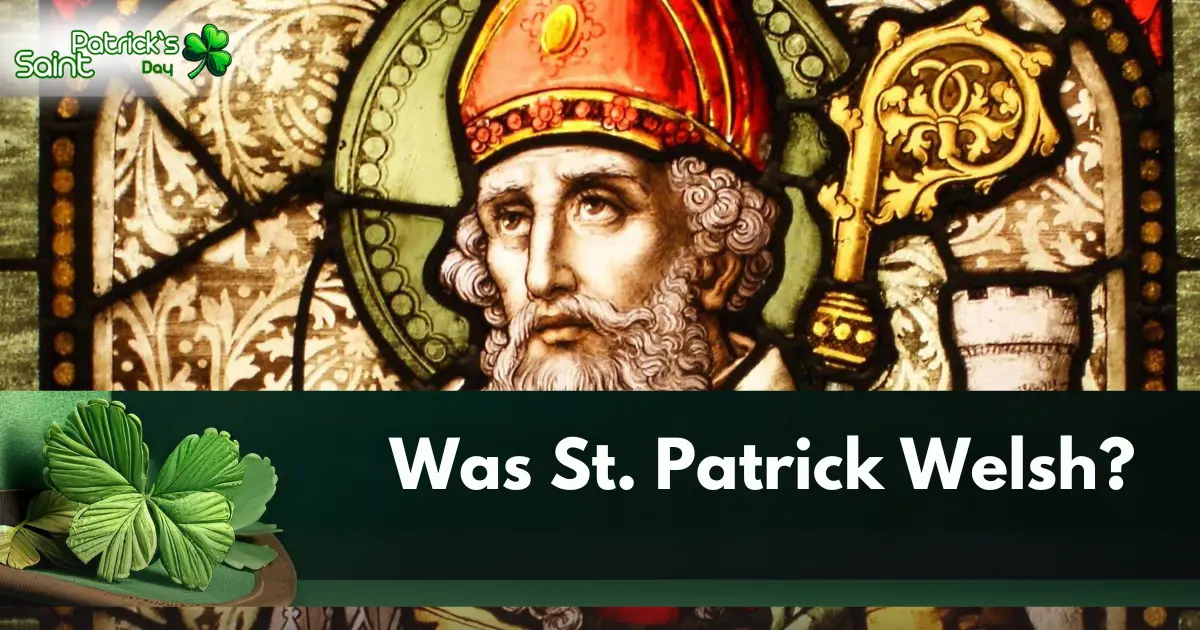Was St. Patrick Welsh? Yes, many historians believe he was born in Roman Britain, possibly in modern-day Wales. His early life was shaped by Roman rule, and although he became the patron saint of Ireland, his roots trace back to Britain.
His journey from being a kidnapped slave to a legendary figure in Irish history makes his story both fascinating and complex. But was St. Patrick truly Welsh? Let’s explore the historical evidence to uncover the truth.
Who Was St. Patrick?
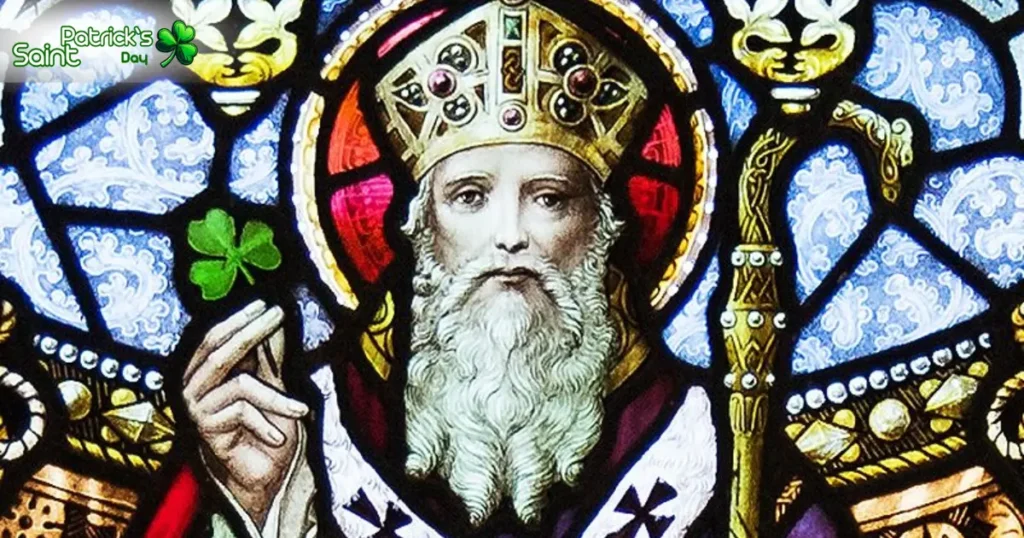
Before we determine his Welsh origins, it’s essential to understand who St. Patrick was and why he became so famous.
- Full Name: Maewyn Succat
- Born: Around 385 AD in Roman Britain
- Enslaved in Ireland: Kidnapped by Irish raiders at age 16
- Escaped & Became a Priest: Returned to Britain, studied Christianity, and became a missionary
- Returned to Ireland: Spent his life converting the Irish to Christianity
- Died: March 17, around 461 AD (celebrated as St. Patrick’s Day)
Although he is synonymous with Ireland, his early life suggests a strong connection to Britain, particularly Wales.
Where Was St. Patrick Born? Exploring His Birthplace
The debate about St. Patrick’s birthplace continues among historians. However, most sources agree that:
- He was born in Roman Britain – This was a large area that included parts of modern-day Wales, England, and Scotland.
- His family was Christian and Romanized – His father, Calpurnius, was a deacon and a local official.
- Possible birthplaces include:
- Bannavem Taburniae – A location mentioned in Patrick’s own writings (but its exact location is unknown).
- Wales – Many scholars suggest that present-day Wales fits the description of his homeland.
- Cumbria (Northern England) – Some historians propose he was born in this region instead.
The strongest argument for Wales comes from linguistic and historical evidence, which indicates that he likely spoke a Brittonic language, similar to early Welsh.
Why Do Some Believe St. Patrick Was Welsh?
Several key factors support the theory that St. Patrick was of Welsh origin:
1. Roman Britain Connection
During St. Patrick’s time, Wales was part of Roman Britain. It was home to many Romanized Celtic communities, including his likely birthplace.
2. Language & Culture
St. Patrick spoke Brittonic, an ancient language that later evolved into Welsh, Cornish, and Breton. His writings suggest he came from a region where this language was spoken, further linking him to Wales.
3. Geographic Clues
- The name Bannavem Taburniae, mentioned in his writings, has been linked to locations in South Wales or Western England.
- Wales had many coastal communities, making it plausible that Irish raiders could have easily kidnapped him from a Welsh settlement.
How Did St. Patrick End Up in Ireland?
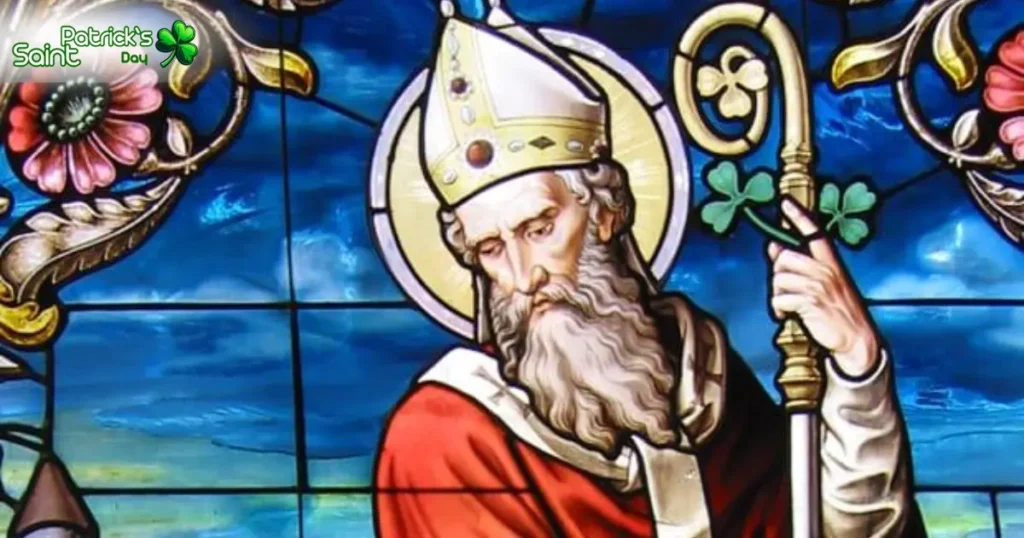
One of the most dramatic events in St. Patrick’s life was his kidnapping by Irish raiders.
- At the age of 16, Irish raiders attacked his homeland and took him as a slave to Ireland.
- He spent six years in captivity, working as a shepherd in County Antrim.
- During this time, he developed a strong faith in Christianity and had a vision telling him to escape.
- He fled back to Britain, eventually becoming a priest before choosing to return to Ireland as a missionary.
Ironically, the land where he was enslaved became the land he dedicated his life to converting to Christianity.
Was St. Patrick Proud of His Welsh (Brittonic) Heritage?
In his own writings, St. Patrick does not directly mention Wales. However, he does refer to himself as a Roman and a Briton, which suggests he identified with the people of Roman Britain, including the Welsh-speaking Britons.
Additionally, some later Welsh sources claim him as their own, stating that he came from a noble Welsh family.
St. Patrick’s Family and Their Welsh Roots
St. Patrick was born into a Romanized Brittonic family in Roman Britain. His family background further strengthens the argument that he was Welsh or at least from a region that later became Wales.
1. Who Were St. Patrick’s Parents?
- Father: Calpurnius, a deacon and local Roman official, indicating that his family was wealthy and influential.
- Mother: Conchessa, whose origins are uncertain, but some sources suggest she may have been of Gallic (French) or Brittonic descent.
2. Was His Family Welsh?
- His family was Christian and lived in a part of Roman Britain where Brittonic was spoken (closely related to Welsh).
- The presence of early Christian communities in Wales suggests that his family might have lived in South Wales or the western parts of Britain.
- His father’s name, Calpurnius, was of Roman origin, but the Brittonic-speaking communities in Wales had many Romanized families during that time.
How Did St. Patrick’s Missionary Work in Ireland Begin?
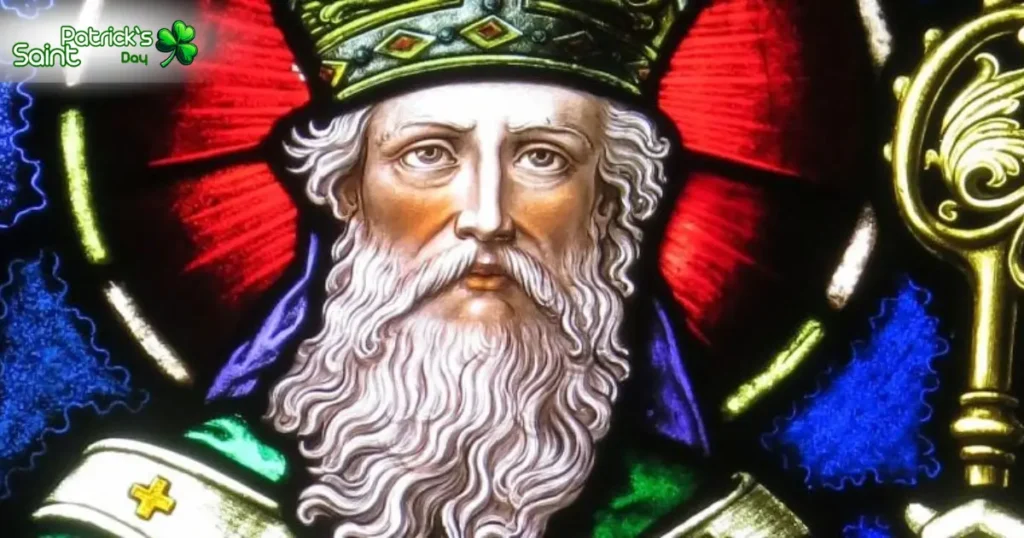
St. Patrick’s journey from a kidnapped slave to the most famous missionary in Ireland is one of the most inspirational religious stories in history.
1. His Escape from Slavery
- After six years of captivity in Ireland, St. Patrick had a vision from God telling him to escape.
- He fled 200 miles to a port, convinced a crew to take him, and returned to Britain.
- Once home, he dedicated himself to Christianity and priesthood.
2. Why Did He Return to Ireland?
- After becoming a priest, he had another vision where the Irish people called him back to spread Christianity.
- He studied in Gaul (modern-day France) and was later ordained as a bishop.
- St. Patrick voluntarily returned to Ireland to convert the Irish people to Christianity.
3. His Legacy in Ireland
- He baptized thousands of Irish people, including kings and nobles.
- He established churches, schools, and monasteries, laying the foundation for Irish Christianity.
- He is credited with driving out pagan practices, replacing them with Christian teachings.
Did St. Patrick Have Any Connection to Welsh Christianity?
Some historical and legendary sources claim that St. Patrick may have had direct interactions with Welsh Christian figures.
1. Did St. Patrick Study in Wales?
- Some medieval Welsh sources claim that St. Patrick studied Christianity in Wales before traveling to Ireland.
- A few legends say that he trained at a monastery in Llantwit Major, South Wales, which was an important Christian center at the time.
2. St. Patrick and St. David (Patron Saint of Wales)
- St. David (the patron saint of Wales) was born after St. Patrick’s time, but some Welsh traditions claim St. Patrick predicted his birth.
- This connection further strengthens the belief that St. Patrick had ties to Welsh religious communities.
3. Did St. Patrick Ever Return to Wales?
- Some Welsh sources suggest that he visited Wales later in life, possibly to spread Christianity or to meet old acquaintances.
- However, there is no concrete historical evidence proving his return.
Welsh Legends and Myths About St. Patrick
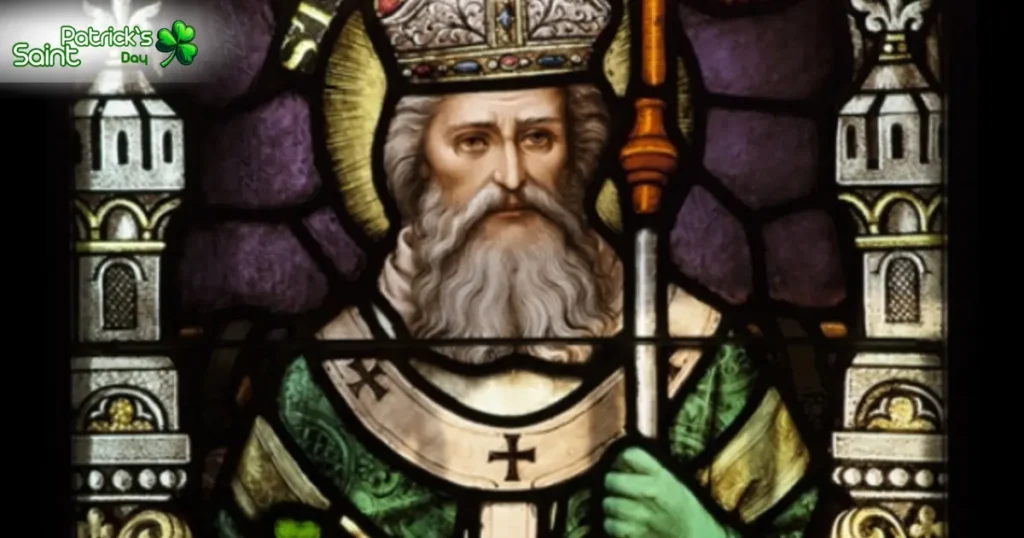
Over the centuries, Welsh legends have added interesting stories about St. Patrick. Some of these are historically debated, but they are part of Welsh folklore.
1. The Myth of St. Patrick’s Welsh Birth
- Some medieval Welsh texts claim St. Patrick was born in South Wales near Caerwent or Banwen.
- Banwen, a small village in Wales, has historical markers claiming it as St. Patrick’s birthplace.
2. The Legend of St. Patrick’s Return to Wales
- Some stories claim that he returned to Wales before his death and trained monks there.
- Another legend suggests he blessed the land of Wales, predicting it would remain a strong Christian nation.
3. The Connection Between Welsh and Irish Saints
- Many early Welsh and Irish saints are linked in folklore, and St. Patrick is often mentioned in Welsh historical records.
- Some traditions mix elements of St. Patrick with St. David, suggesting a spiritual connection between Ireland and Wales.
Analyzing the Evidence: Was St. Patrick Really Welsh?
We’ve explored St. Patrick’s birthplace, family background, and Welsh connections, but was he truly Welsh? The answer depends on how we define “Welsh” in historical terms.
1. St. Patrick Was Born in Roman Britain
- St. Patrick himself wrote that he was from Roman Britain, not specifically Wales.
- During his lifetime (4th–5th century AD), Wales as a distinct nation did not exist—it was simply part of Roman Britain.
2. Did He Speak Welsh?
- St. Patrick spoke Brittonic, the ancient language that later evolved into Welsh, Cornish, and Breton.
- This means he likely spoke an early form of Welsh, strengthening the argument that he was connected to Welsh heritage.
3. The Bannavem Taburniae Mystery
- The biggest clue to his birthplace is a place he called Bannavem Taburniae.
- Historians still debate where this was, but theories suggest South Wales, Cumbria (England), or Strathclyde (Scotland).
- Many scholars lean toward Wales due to the language and cultural ties.
📌 Final Verdict:
✅ St. Patrick was Brittonic, making him culturally and linguistically linked to Wales.
✅ He was from Roman Britain, and the most likely location of his birthplace is South Wales.
❌ He never directly identified as “Welsh” because Wales as a country did not yet exist.
So, while we can’t say with 100% certainty that he was Welsh in a modern sense, his roots were undoubtedly connected to what became Wales.
How St. Patrick Changed Christianity in Wales and Ireland
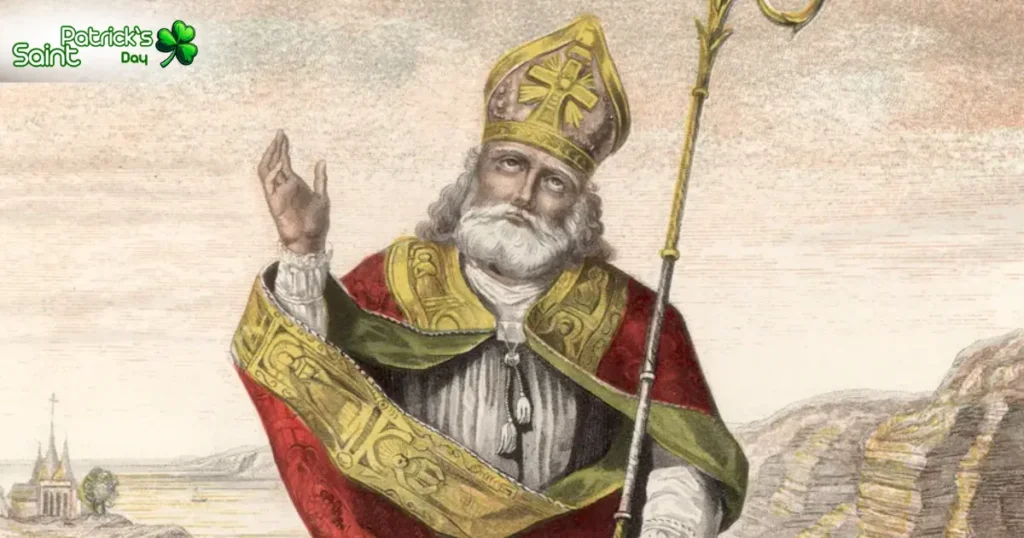
Although he became the Patron Saint of Ireland, St. Patrick’s influence reached beyond Ireland.
1. Impact on Christianity in Ireland
- He converted thousands of Irish people to Christianity.
- He helped organize churches and monastic communities in Ireland.
- He replaced many pagan traditions with Christian teachings, making Ireland a strong Christian nation.
2. Influence on Welsh Christianity
- Although St. David is the Patron Saint of Wales, St. Patrick may have influenced early Welsh Christian traditions.
- Some early Welsh monks and religious leaders were inspired by St. Patrick’s teachings.
- His connection to Brittonic speakers linked early Christian Wales with Christian Ireland.
Conclusion
St. Patrick is one of the most celebrated figures in history, and while he is primarily associated with Ireland, his roots trace back to Britain, likely Wales.
FAQs
His real name was Maewyn Succat, and he later adopted the name Patrick after becoming a priest.
Yes, historical sources suggest St. Patrick was born in Roman Britain, possibly in present-day Wales.
St. Patrick was likely born in Roman Britain, in a region that is now part of Wales or western England.
He was kidnapped by Irish raiders, enslaved, later escaped, and returned to Ireland as a Christian missionary.
He likely spoke a form of Brittonic, the ancient language spoken in Wales and western Britain at the time.
Related Post
- Top St. Patrick’s Day Activities to Celebrate in 2025
- How Did Saint Patrick Die?
- Was St. Patrick Italian? The Truth Behind His Origins
- The Best St. Patrick’s Day Quotes for Luck & Joy in 2025
- St. Patrick’s Day Cartoon | Fun, Festivities, and Irish Charm
- Best St. Patrick’s Day Ideas for 2025
